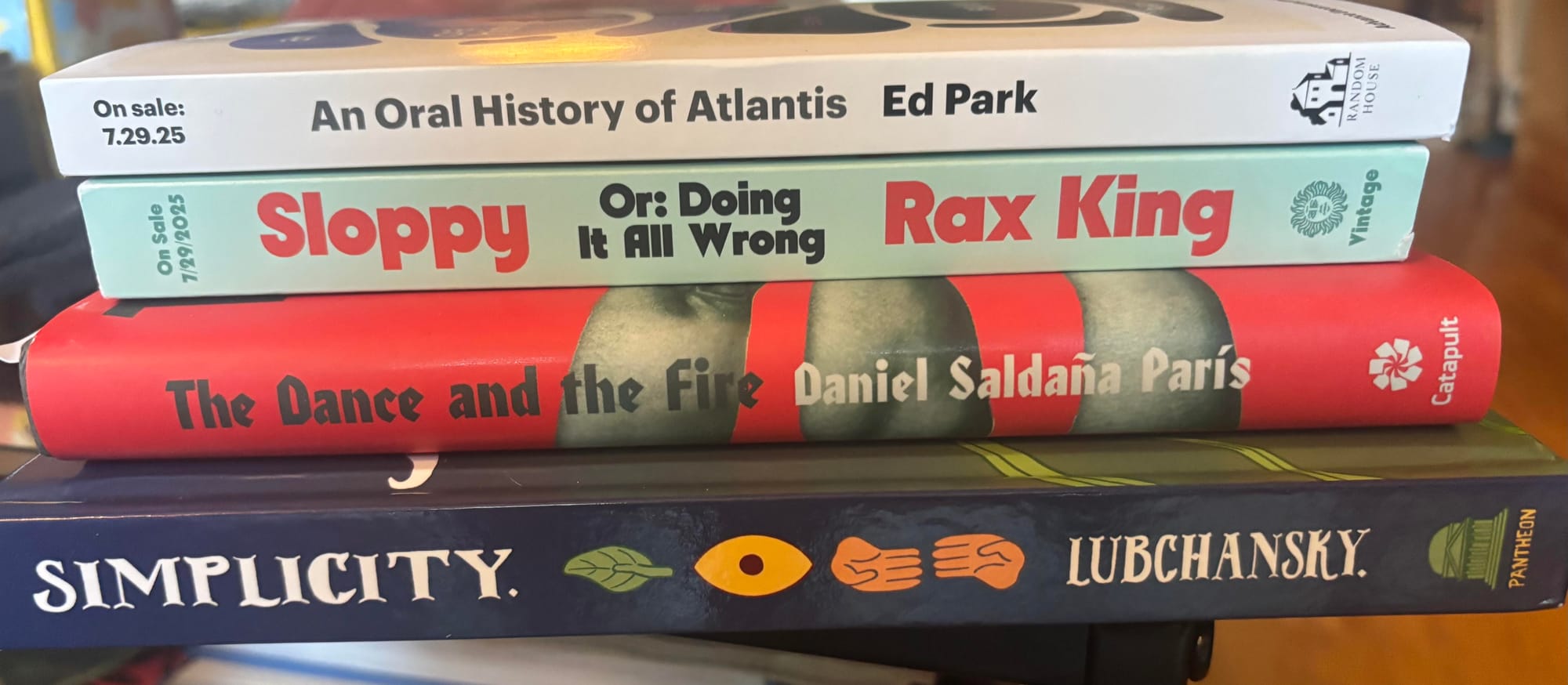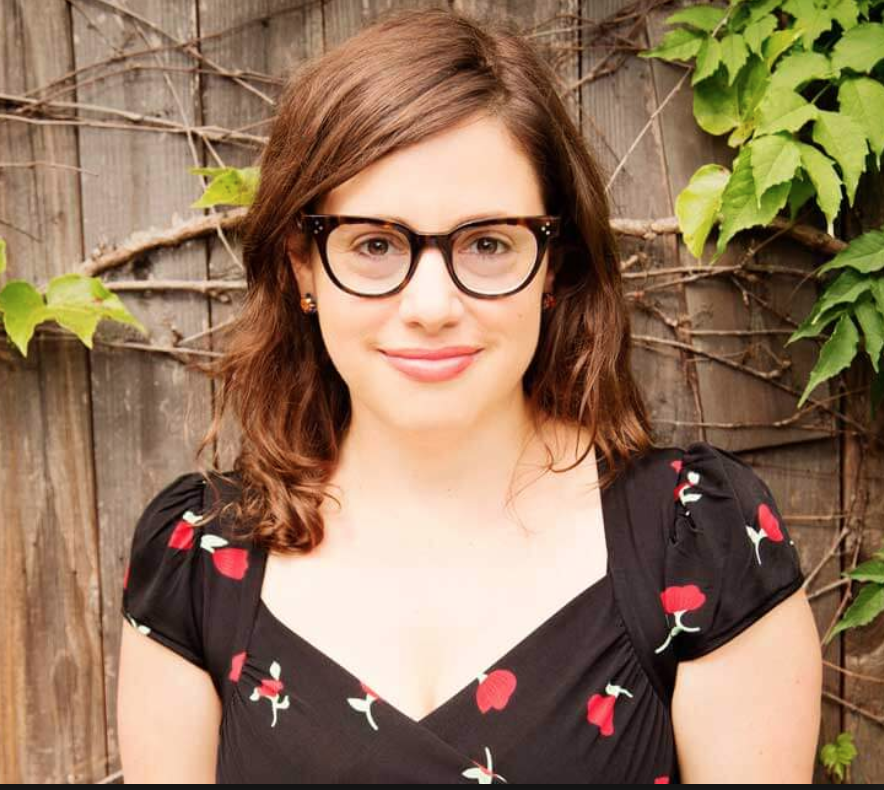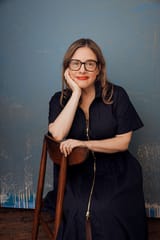The Maris Review, vol 65

On ladykillers, both literally and metaphorically
Perhaps you'd like to become a paid subscriber? Exclusive stuff is coming.
What I read this week
Murderland: Crime and Bloodlust in the Time of Serial Killers by Caroline Frasier
I try not to know too much about the lives of real life serial killers, but so much of the lore manages to make its way to my brain anyway. I know that the late 70s/early 80s was a peek time for prolific serial killers as we know them, the sadists and sex fiends who lured attractive bell-bottomed young women to remote spots to terrorize and murder them. Or sneaked into their homes to terrorize and murder them. So much from this era is reflected back to us in subsequent stories we tell, from art to urban legend and pop culture. The details feel familiar. But I'm an ethics in true crime kind of person, which means I look for takes that center the victims and don't glorify the killers in any way (not talking about you, Ryan Murphy's Dalmer series). I read Jessica Knoll's Bright Young Women (a fictionalized thriller about a few of the Ted Bundy murders), I'm a loyal subscriber to Sarah Weinman's Crime Lady newsletter, and I listen to my beloved and always incisive You're Wrong About.
All of which to say is that Murderland is a big change for me, a comprehensive account of the Peak Serial Killer era in American history in which the names of all the victims are so plentiful and difficult to keep track of that I didn't even try. Author Caroline Fraser switches narrative focus so rapidly between a variety of homicidal maniacs (but lingering longest on Ted Bundy) that it was difficult enough to keep track of which killer was which. And that seems intentional. The book is expertly written, but it's also a violent blur of details coming at you fast. Inescapable details. Sometimes I had to skip over a few paragraphs at a time because the details were too overwhelming.
A native of Mercer Island, Frasier grew up in the Pacific Northwest at the origination of, according to the book's marketing copy, "a new strain of psychopath." These men took deep pleasure in killing and killing again in unfathomable numbers unmatched since. About the Green River Killer, Frasier writes, "He kills women the way other men eat potato chips or wash their cars or clip their toenails. One after another." Horrifying, and this is before we contemplate how these men sexually assaulted their victims – sometimes before and sometimes after murdering them (I am very firmly in the category of after is easier to stomach). This is my way of saying: this book isn't for everyone.
Murderland is also a smoggy, pungent history of the environmental destruction brought on by the smelting industry, which was rampant in Washington State at the time, particularly in the city of Tacoma. The dust from Superfund innovator ASARCO (American Smelting and Refining Company) was full of lead and cadmium and arsenic, zinc, and other metals, all of which, of course, are extremely toxic to humans. For every component of a serial killer's history Frasier documents, she gives the same attention to the damage smelting did to people in the area (lead poisoning has been proven to make men more violent). She also has righteous disdain for the captains of industry (the Guggenheims, in particular) who ran ASARCO knowing how harmful it was to the mostly working class people in the area and who just didn't give a flying fuck. The polluters committed crimes just as morbid, just as hubristic, as those of serial killers, Fraser seems to say, but their names are still on museums. It's a damning juxtaposition.
Did all of this pollution cause bloodlust to emerge in so many of the little boys who grew up near ASARCO? Seems unlikely. There are no neat little answers in either nature or nurture for how such aberrant behavior emerges, as far as I know. But proof of the correlation between the poisoning of the environment and the poisoning of the mind is on just about every page of this book, and it's just one more thing to dread as the EPA gets dismantled under Trump.
How about a nice change of pace?
These Summer Storms by Sarah MacLean
Here comes Sarah MacLean to claim her title as Queen of the Summer right alongside Elin Hildebrand. Sarah has long mastered historical romance, and her first contemporary novel doesn't disappoint – you'll want to put in your bag if you want classic beach read vibe, equal parts steamy and funny and tender.
Set on a private island off of Rhode Island, These Summer Storms is the story of a tech billionaire who's a sort of amalgam of Jobs and Gates with a pinch of Bezos, and what happens to his family when he dies suddenly. His four children descend on Storm Island to attempt to console their mother (who has many delightful Lucille Bluth qualities and made me crave gin in the morning) and to claim their inheritance. But succession won't be so simple, according to the bonkers instructions their father has left. The next few days the Storms will be tested in many ways and all manner of secrets will be revealed. And also, Alice, the outspoken daughter who had been estranged from her father at the time of his death, will have tons of hot sex with the man who's in charge of carrying out her father's wishes.
Help

New releases, 7/29

An Oral History of Atlantis by Ed Park
Sloppy Or: Doing It All Wrong by Rax King
The Dance and the Fire by Daniel Saldãna París
Simplicity by Mattie Lubchansky
Black Genius: Essays on an American Legacy by Tre Johnson
The Good Liar by Denise Mina
Gwyneth: The Biography by Amy Odell





